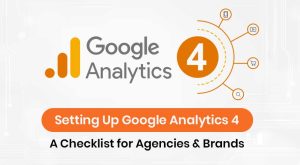Search Engine Optimization (SEO) is a crucial strategy for enhancing a website’s visibility in organic search results, driving traffic, and improving online presence. By optimizing content and keywords, businesses can attract targeted audiences, improve brand credibility, and enhance user experience. SEO offers long-term benefits by continuously drawing organic traffic without the need for ongoing ad expenditure.
Benefits of SEO:
- Increases Website Traffic: Boosts visibility through optimized content and technical improvements.
- Improves Brand Visibility: Establishes credibility and enhances awareness through search engines and social media.
- Generates High-Quality Leads: Attracts potential customers with relevant keywords, guiding them through the conversion funnel.
- Increases Conversion Rates: Optimizes user experience, encouraging visitors to become customers.
- Improves User Experience: Enhances website speed and navigation, aiding engagement and retention.
Costs and Feasibility: SEO costs vary based on services, tools, and time investment. While feasible for most businesses, its effectiveness depends on budget, industry competition, and a commitment to long-term strategies. Measuring success involves tracking metrics like keyword rankings, organic traffic, and ROI to optimize future efforts.
Table of Contents
- 1 Key Takeaways:
- 2 What Is SEO?
- 3 How Does SEO Benefit Businesses?
- 4 What Are The Costs Of SEO?
- 5 Is SEO Feasible for All Businesses?
- 6 How Can Businesses Measure the Success of SEO?
- 7 Frequently Asked Questions
- 7.1 What are the benefits of implementing SEO?
- 7.2 Is SEO Expensive or a Cost-Effective Marketing Strategy?
- 7.3 What are the costs associated with SEO?
- 7.4 Is SEO feasible for small businesses?
- 7.5 How long does it take to see results from SEO?
- 7.6 Can I do SEO on my own or do I need to hire a professional?
Key Takeaways:
- SEO is a crucial tool for businesses to increase website traffic, improve brand visibility, generate high-quality leads, and boost conversion rates.
- The costs of SEO include time investment, hiring an agency, and investing in tools and software.
- While SEO may not be feasible for all businesses due to budget constraints and competition, it requires a long-term commitment for success.
What Is SEO?
Search Engine Optimization (SEO) is the process of improving a website’s visibility in organic search results on search engines like Google, Bing, and Yahoo.
SEO involves optimizing content and keywords to attract more traffic and improve online presence.
How Does SEO Benefit Businesses?
SEO benefits businesses by increasing website visibility in search engine results, driving organic traffic, improving brand credibility, and enhancing user experience.
SEO strategies help businesses attract targeted audiences by optimizing content for relevant keywords, resulting in higher rankings on search engines.
Increased visibility leads to more website traffic, which can convert into sales or leads.
Improved user experience through SEO practices such as faster load times and mobile optimization further supports engagement and conversions.
SEO provides long-term ROI by continuously attracting organic traffic without the need for ongoing ad spend.
Increases Website Traffic
SEO increases website traffic by improving visibility in organic search results through keyword optimization and mobile-friendly design.
High-quality content and technical improvements like site speed and schema markup enhance engagement and conversion rates.
SEO strategies lead to sustainable traffic growth and customer engagement.
Improves Brand Visibility
Improving brand visibility is a key benefit of effective SEO, achieved by optimizing online presence and building credibility in search engines like Google and Bing.
Brand visibility increases through content optimization with targeted keywords and establishing backlinks from credible sites.
Social media platforms can amplify reach by sharing optimized content and engaging audiences.
SEO strategies enhance brand awareness and recognition among target audiences.
Generates High-Quality Leads
SEO generates high-quality leads by targeting specific audiences with relevant keywords.
SEO works by attracting potential customers interested in specific products or services.
Understanding customer behavior allows businesses to tailor strategies and use advanced analytics for precise audience targeting.
Effective SEO techniques guide leads through the conversion funnel, from awareness to decision-making.
High-quality traffic enhances business success and contributes significantly to the bottom line.
Increases Conversion Rates
SEO increases conversion rates by optimizing website elements like user experience, navigation, and content quality to transform visitors into customers.
An intuitive website structure and mobile-friendly design improve engagement and accessibility, enhancing user retention.
Persuasive content with clear calls-to-action (CTAs) encourages conversions.
Combining SEO with engaging content elevates conversion rates efficiently.
Improves User Experience
SEO improves user experience by enhancing website speed, mobile compatibility, and intuitive navigation.
Faster loading times reduce bounce rates, while mobile-friendly designs accommodate smartphone users.
Intuitive navigation helps users find information easily, promoting engagement and retention.
What Are The Costs Of SEO?
The costs of SEO typically range from €500 to €5,000+ per month, depending on the scale and scope of services.
Factors influencing SEO costs include hiring an SEO agency, using specialized tools and software, and the extent of time investment needed for optimization.
Time Investment
Time investment in SEO involves ongoing keyword research, consistent content marketing, and regular audits to maintain and improve search engine rankings.
Research includes thorough keyword analysis to target the right audience. Implementation requires optimizing on-page and off-page elements for sustainable growth. Regular audits help identify areas for adjustment and improvement.
Investing time in these activities is crucial for achieving long-term benefits and a considerable return on investment.
Hiring an SEO Agency
Hiring an SEO agency involves outsourcing search engine optimization tasks to experts, which can enhance a business’s digital marketing strategy.
Costs of hiring an SEO agency vary based on expertise and services provided.
Key considerations when hiring include the agency’s experience, proven track record, case studies, and client reviews.
An SEO agency allows businesses to focus on core operations while managing SEO complexities.
Costs of Tools and Software
SEO tools and software costs vary, with essential tools including keyword research, backlink analysis, and website audit platforms.
- Keyword Research Tools: SEMrush or Ahrefs cost $99 to $399 per month.
- Backlink Analysis Tools: Moz or Majestic range from $49 to $349 per month.
- Website Audit Tools: Screaming Frog or Sitebulb are priced $0 to $200 annually.
Investment in these tools supports effective SEO strategies.
Is SEO Feasible for All Businesses?
SEO is feasible for most businesses, but its effectiveness depends on budget, industry competition, and commitment to long-term strategies.
Businesses with limited resources or highly competitive industries may face challenges in achieving SEO success.
Budget Constraints
Budget constraints influence a business’s ability to invest in SEO by limiting available resources.
Companies must allocate funds wisely to essential SEO activities like on-page optimization and low-cost tools for keyword analysis.
Strategic planning and performance tracking align SEO efforts with budget limitations, ensuring efficient use of financial resources.
Competition in Industry
Competition in an industry influences the effectiveness of SEO strategies by requiring more investment in time and resources for businesses in competitive markets.
High competition necessitates unique strategies like focusing on long-tail keywords, creating high-quality content, and implementing local SEO.
These strategies help businesses gain a competitive advantage.
Long-term Commitment
A long-term commitment to SEO is essential for sustained success and competitive advantage.
SEO requires ongoing efforts to adapt to changes in search engine algorithms and customer behavior.
Long-term SEO efforts result in compounding organic growth, improved search engine rankings, and cost-effectiveness.
Every piece of optimized content enhances visibility by contributing to a growing network of backlinks.
Consistent keyword optimization and quality content build trust and authority with search engines.
Unlike paid ads, effective SEO provides lasting returns without ongoing costs.
Viewing SEO as a strategic investment fosters resilience in brand visibility and cultivates loyal customer relationships.
How Can Businesses Measure the Success of SEO?
Businesses measure the success of SEO by tracking key metrics such as keyword rankings, organic traffic, and return on investment (ROI).
Keyword rankings indicate a website’s position in search engine results for specific terms, impacting overall Search Engine Optimisation (SEO) and Search Engine Marketing (SEM) efforts.
Organic traffic measures the number of organic visitors arriving from search engines without paid advertising, enhancing traffic engagement and user engagement.
ROI assesses the financial gain from SEO investments relative to the costs incurred, providing measurable ROI and strategic insights.
These metrics help businesses understand SEO performance and optimize future strategies.
Keyword Rankings
Keyword rankings measure the success of SEO by tracking how specific keywords perform in search engine results.
Tools to monitor keyword rankings include:
- Google Search Console: Free tool for tracking search performance, aiding website optimization and competitive edge.
- SEMrush: Provides data on keyword positions and competitive analysis.
- Ahrefs: Monitors organic traffic and keyword rankings over time, offering data-driven decisions and strategic insights.
Check keyword performance:
- Weekly for new or recently launched content.
- Monthly for established keywords to identify trends.
Adapting strategies based on keyword performance enhances SEO outcomes and ensures sustained visibility, increased organic traffic, and a competitive edge in market dynamics.
Organic Traffic
Organic traffic refers to visitors who arrive at a website through unpaid search engine results.
Tracking organic traffic is crucial for assessing the effectiveness of SEO strategies in attracting visitors and achieving SEO benefits.
Key metrics for monitoring organic traffic include bounce rate and session duration. High bounce rates indicate that users do not find the content relevant, while long session durations suggest better engagement.
Web analytics tools like Google Analytics can help track these metrics:
- Traffic Sources: Identify the origin of visitors to optimize those channels.
- User Behavior: Analyze user navigation for improved content placement.
- Conversion Rates: Measure visitor actions to evaluate SEO success and drive advertising campaigns.
Incorporating these metrics enables better adjustments to SEO strategies, enhancing visitor engagement and market reach.
Conversion Rates
Conversion rates indicate how effectively a website turns visitors into customers by measuring the percentage of visitors who complete a desired action.
Calculate conversion rates by dividing the number of conversions by total visitors and multiplying by 100.
Improving conversion rates involves enhancing user experience, ensuring clear calls to action, and leveraging PPC ads.
Return on Investment (ROI)
Return on Investment (ROI) measures the financial impact of SEO efforts by comparing the costs against the revenue generated.
Calculating SEO ROI involves defining goals, tracking key metrics like organic traffic and conversion rates, calculating costs, and measuring results through revenue analysis and market reach.
ROI helps businesses evaluate SEO effectiveness and informs future marketing strategies, including SEO outsourcing and technical optimization.
Brand Visibility and Awareness in SEO and Marketing Strategies
Brand visibility and awareness in SEO reflect how well a business is recognized in its industry.
Monitoring brand visibility involves tracking brand mentions and analyzing audience engagement using tools like Google Alerts and Brandwatch.
Key metrics include social media engagement, website traffic, and keyword performance in search rankings. These insights, alongside web analytics, help gauge audience perception and recognition, bolstering branding and e-commerce efforts.
Customer Engagement and Feedback
Customer engagement and feedback are crucial for evaluating SEO strategy success by providing insights into content resonance with the target audience, fostering social media visibility and market reach.
To gather customer feedback, businesses can use surveys, social media monitoring, and website analytics.
Surveys collect structured feedback, social media monitoring tracks brand mentions, and website analytics measure user behavior.
These insights help refine SEO strategies to better align with audience expectations.
Frequently Asked Questions
What are the benefits of implementing SEO?
SEO can help improve your website’s search engine ranking, which can lead to increased website traffic and potential customers. It can also enhance the overall user experience on your website and increase brand visibility and credibility.
Is SEO Expensive or a Cost-Effective Marketing Strategy?
The cost of SEO can vary depending on various factors such as the scope of work, competition, and the agency or professional hired. However, compared to other marketing strategies, SEO can be a cost-effective option in the long run as it can bring in organic traffic to your website.
What are the costs associated with SEO?
The costs associated with SEO can include keyword research, on-page optimization, off-page optimization, technical optimization, link building, content creation, and ongoing maintenance. It is important to carefully assess your budget and goals before deciding on an SEO strategy and considering SEO outsourcing.
Is SEO feasible for small businesses?
Yes, SEO can be a feasible option for small businesses as it can help level the playing field with larger competitors. With targeted keywords and a well-designed website, small businesses can rank higher in search engine results and attract potential customers, achieving a strategic edge and market reach.
How long does it take to see results from SEO?
The timeline for seeing results from SEO can vary depending on various factors such as the competitiveness of keywords, the current state of your website, and the quality of SEO efforts. Generally, it can take a few months to see significant improvements in search engine rankings.
Can I do SEO on my own or do I need to hire a professional?
While some basic SEO techniques can be implemented by individuals with knowledge in the field, it is recommended to hire a professional or agency to ensure effective and ethical SEO practices. SEO requires constant monitoring and updates, which can be time-consuming for business owners.







